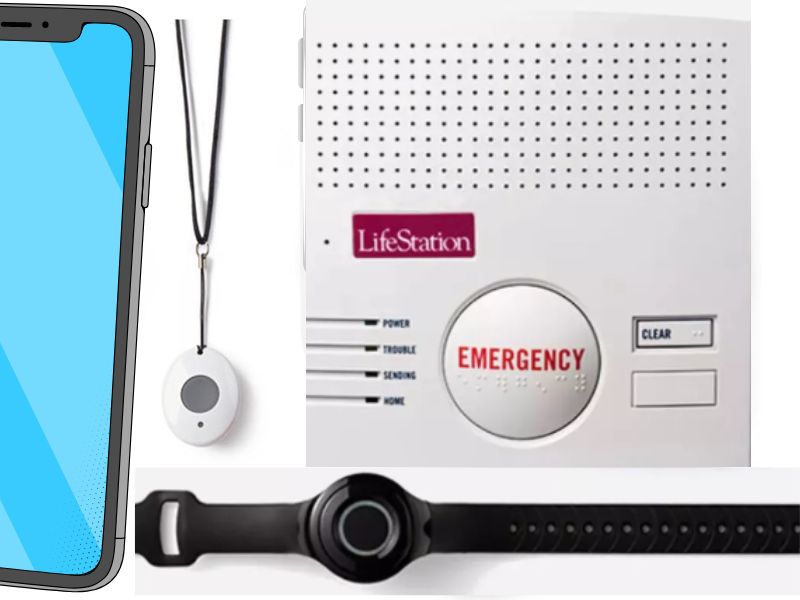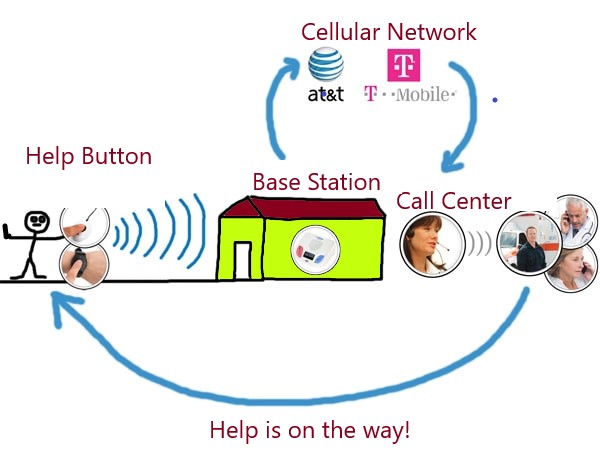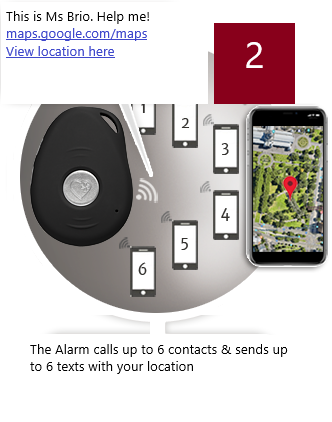Do You Need Wi-Fi for Medical Alert Systems?
It depends on the type of medical alert system you are using. Some medical alert systems, such as in-home and smart home systems, require a Wi-Fi connection. These systems typically use Wi-Fi to connect to the internet and transmit emergency signals to the monitoring center.

However, there are also medical alert systems that do not require a Wi-Fi connection. For example, landline medical alert systems use a telephone line to transmit the emergency signal, and cellular medical alert systems use cellular technology. GPS medical alert systems also do not require Wi-Fi as they use GPS technology to determine the user’s location and transmit the emergency signal.
So, whether you need Wi-Fi for a medical alert system will depend on the specific type of system you choose and your individual needs. If you do not have a Wi-Fi connection in your home or do not want to rely on Wi-Fi, consider a landline or cellular medical alert system.
Let’s explore further in this article the different types of medical alert systems, their connectivity requirements, and the pros and cons of using a Wi-Fi connection.
What is Medical Alert System?
Medical alert systems are designed to provide the elderly, disabled, or anyone who lives alone with peace of mind and quick access to help in an emergency. These systems consist of a wearable device, such as a pendant or wristband, that can be pressed to send a signal to a base unit. The base unit then communicates with a monitoring center, where trained professionals can assess the situation and dispatch emergency services if necessary. Medical alert systems have become more advanced and user-friendly with advancements in technology.
Types of Medical Alert Systems
Medical alert systems allow individuals to quickly and easily call for help in an emergency. There are several different types of medical alert systems, including:
Landline Medical Alert Systems
These systems require a landline telephone connection and use the telephone line to transmit the emergency signal to a monitoring center.
Cellular Medical Alert Systems
These systems use cellular technology to transmit emergency signals, eliminating the need for a landline.
GPS Medical Alert Systems
These systems use GPS technology to determine the user’s location and transmit the signal to the monitoring center. This type of system is especially useful for individuals who are prone to wandering or have dementia.
Fall Detection Medical Alert Systems
These systems are equipped with sensors that detect when a fall has occurred and automatically send an emergency signal to the monitoring center.
In-Home Medical Alert Systems
These systems are designed to be used within the home and are typically connected to a base unit connected to the telephone or cellular network.

Mobile Medical Alert Systems
These systems are designed for on-the-go use and often come in the form of a pendant or wristband that the user can wear.
Smart Home Medical Alert Systems
These systems integrate with other smart home devices and allow individuals to call for help using voice commands or a smartphone app.
Medical Alert Systems with Monitoring
These systems are monitored by a team of trained professionals available 24/7 to assist with any emergency.
The type of medical alert system best for individuals will depend on their specific needs and preferences.
Pros of Using Wi-Fi for Medical Alert Systems
- Improved Coverage and Quality: A Wi-Fi connection can help to improve the coverage and quality of your medical alert system. Connecting your system to a Wi-Fi network can extend the system’s range and improve the connection’s reliability. This can be especially useful if you live in an area with poor cellular coverage.
- More Features: Some cellular-based medical alert systems offer additional features and services if connected to a Wi-Fi network. For example, some systems may offer automatic fall detection, which can detect if you have fallen and send an alert to the monitoring center without pressing the emergency button.
- Cost Savings: Using a Wi-Fi connection may save your cellular service plan money. Some medical alert systems offer lower-cost or free cellular service if connected to a Wi-Fi network.
Cons of Using Wi-Fi for Medical Alert Systems
- Potential for Interference: A Wi-Fi network can be subject to interference from other devices, such as smartphones, tablets, and laptops. This can affect the quality and reliability of the connection, which can be critical in an emergency.
- Dependency on Wi-Fi Network: If your Wi-Fi network goes down, your medical alert system may not be able to communicate with the monitoring center. This can be especially problematic if you live alone and rely on your medical alert system for quick access to help in an emergency.
- Security Concerns: When connecting your medical alert system to a Wi-Fi network, you may expose your personal and sensitive information to security risks. It is important to ensure that your Wi-Fi network is secure and protected by a strong password to prevent unauthorized access.
Conclusion

In conclusion, whether or not you need Wi-Fi for your medical alert system depends on the type of system you have and your personal needs and preferences. If you have a landline-based system, a Wi-Fi connection is not necessary, but it may offer additional features and services.
A Wi-Fi connection can provide improved coverage and quality, additional features, and cost savings if you have a cellular-based system. Still, it may also be subject to interference, dependency on the Wi-Fi network, and security risks.
It is important to carefully consider the pros and cons of using Wi-Fi for your medical alert system and to make an informed decision based on your specific needs and circumstances. You should also consult with a professional or the manufacturer of your medical alert system to ensure that you are using it correctly and to the best of your ability.
Overall, medical alert systems can provide peace of mind and quick access to help in an emergency. Whether or not you use a Wi-Fi connection, it is important to have a medical alert system in place to ensure that you are protected and prepared in an emergency.
